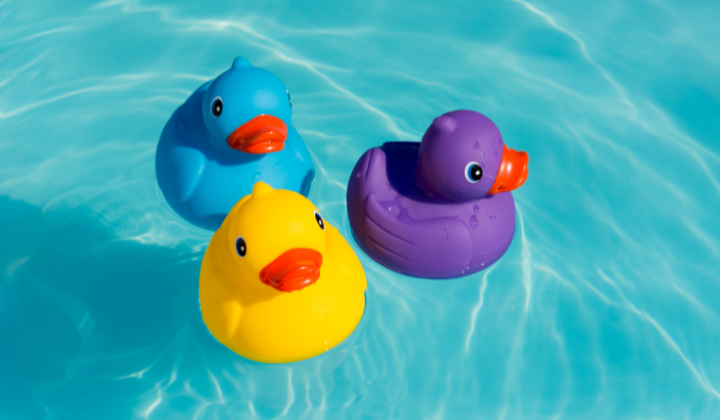
– Manuscript –
Two giant, yellow ducks are floating in Hong Kong’s Victoria Harbor. A huge air-filled “Rubber Duck” was very popular in the city’s financial area 10 years ago. Now, there are two.
This year, the ducks form an art exhibit called “Double Ducks” by Dutch artist Florentijn Hofman. They look like traditional bath toys for children. But these ducks are over 18 meters tall!
Just after they were put into the water, many people gathered on the nearby walkway to take photos. The ducks will float on the harbor for two weeks, and Hofman hopes they will bring happiness to the city, help create memories and connect people.
Hofman says that the ducks stand for “twice the fun and double the happiness. Double duck, double luck. I hope it will bring as much pleasure as it did in the past…”
AllRightsReserved is the Hong Kong-based artistic group that is supporting Hofman’s duck exhibit. The group said that the ducks were similar to the Chinese language characters for “friends” and “happiness.”
Years ago, Hofman took inspiration to create a giant duck from a world map and, of course, a rubber duck. He started his traveling show in the Netherlands in 2007. He put the duck in many harbors including ones in France and Brazil.
The Double Ducks are now floating near Hong Kong’s central area and Tamar Park.
The ducks are inspiring other artists like Laurence Lai to capture the ducks in a different way. Lai is making watercolor paintings of the ducks. The 50-year-old said that since the COVID-19 pandemic, Hong Kong has been full of negative energy and thinks it is time for something different.
“With life returning to normal, the ducks can bring back some positivity,” Lai said.
Forty-year-old Kane agreed that the ducks were positive for Hong Kong. “It’s a silver lining when the society is in such low spirits. It’s better (that) the government (spends) money on this than on other areas.”
Eva Yang is a tourist and Shenzhen resident. She and her family were excited to see the ducks. She said this has made their visit more memorable.
“They’re spectacular,” Yang said.
Another woman, forty-year-old Anna, who was walking nearby, said that she also enjoyed seeing the exhibition.
“We would like more installation art like the rubber ducks in Hong Kong. Right now, there isn’t much space for art in Hong Kong if we compare it to Macau or Shenzhen, they have more art installations,” Anna said.
Many people remember the joy that Hofman’s earlier duck brought to the Tsim Sha Tsui pier and shopping district in 2013.
The tour of the original 2013 duck became political by accident on the social media service Weibo during the 24th anniversary of Beijing’s Tiananmen protests in 1989.
Internet users posted an image in which the military tanks in the well-known “Tank Man” picture were replaced with the giant yellow ducks. Chinese censors immediately blocked searches for the words “big yellow duck.”
Words in This Story
exhibit – n. an object or a collection of objects that have been put out in a public space for people to look at: something shown in an exhibition
toy – n. something a child plays with
character – n. a symbol (such as a letter or number) that is used in writing or printing
inspiration – n. someone or something that gives you ideas or causes you to want to do something
watercolors – n. colored paints combined with water or a wet brush to create an effect
negative – adj. having harmful or undesirable effects
positivity – n. the quality or state of being good and/or hopeful
silver lining – idiom something good that can be found in bad or difficult situations
tourist – n. a person who travels to a place for pleasure
censor – n. a person who examines media and removes things that are considered to be offensive, immoral, or harmful to society
*This article has been edited and reprinted from VOA Learning English with permission from Voice of America (VOA) for use in English language materials.
